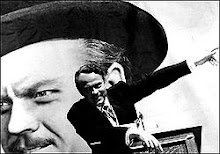The Happy Years (1950, William A. Wellman) **
This movie could easily be passed over as a well produced romantic vision of 1890s America’s eastern upper crust at boarding school and how they passed their time. What makes it interesting is that it was directed by “Wild Bill” Wellman; who is primarily known for no holes barred action and urban realism with films ranging from Wings, The Public Enemy, Wild Boys of the Road, Viva Villa!, The Ox-Bow Incident and Yellow Sky. More important this is the movie Wellman made immediately after Battleground -- the seminal WW2 movie of my father’s generation; the most gritty and realistic look at the war on film at the time (nominated for six Academy Awards including picture and director). Despite excellent direction and fine performances, everything about The Happy Years is expected and feels like it would have been better made with Mickey Rooney before the war. And this isn’t a fault of the production or the actor's performances. The source material is known as the "Lawrenceville Stories" that were published in The New Yorker between 1900 -1910 making them a nostalgic look back when they were written). Instead of Mickey we have the fresher faced Dean Stockwell who plays young John Humperkink "Dink" Stover, a legacy student at the venerable Lawrenceville Prep. Stockwell as a child star played supporting sharing the screen with the likes of William Powell and Myrna Loy, Gregory Peck and Errol Flynn all before he was fifteen when he was the lead in The Boy With the Green Hair. He didn’t know it at the time but his career as a child star was about to run out of gas. Darryl Hickman the older and the less remembered older brother of Dwayne (Dobie Gillis) also had his share of credits, but always in more of a supporting player despite his brilliant role in Leave Her To Heaven where he plays the most innocent of victims. The cast is rounded out with Leon Ames (a perennial father in movies Meet Me In St. Louis and From the Terrace to name two) and the Hitchcock favorite Leo G. Carroll as the schoolmaster. The Happy Years almost makes one believe that everyone lived this idealized life in this view of America’s past, suggesting that all American’s could aspire to be wealthy and have their sons attend an elite school one day. This is the stuff that American dreams are made of; especially during the years after the victory of WWII.
Subscribe to:
Post Comments (Atom)


No comments:
Post a Comment